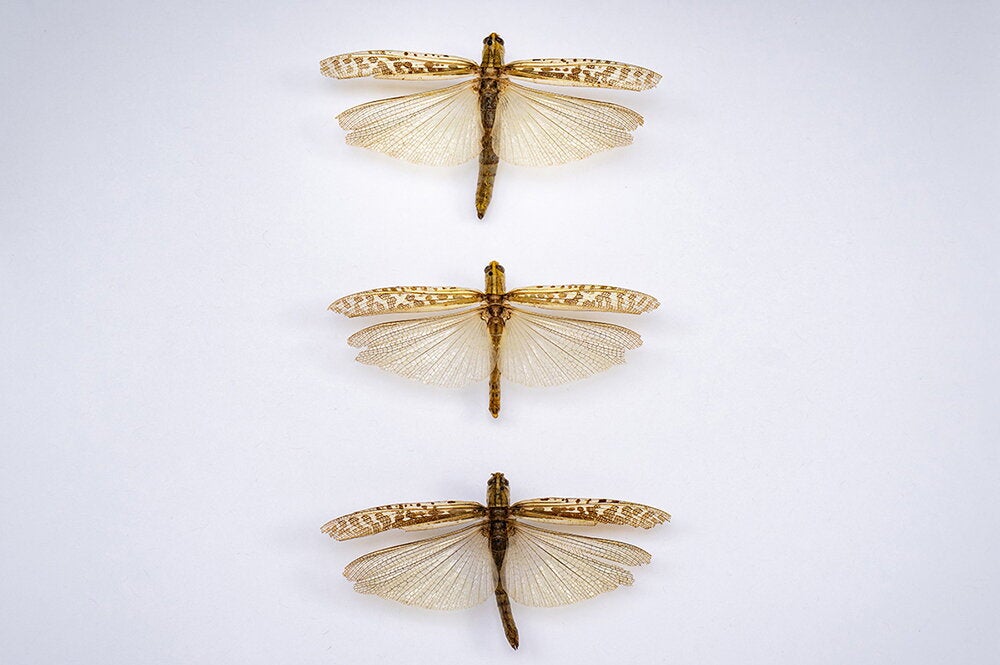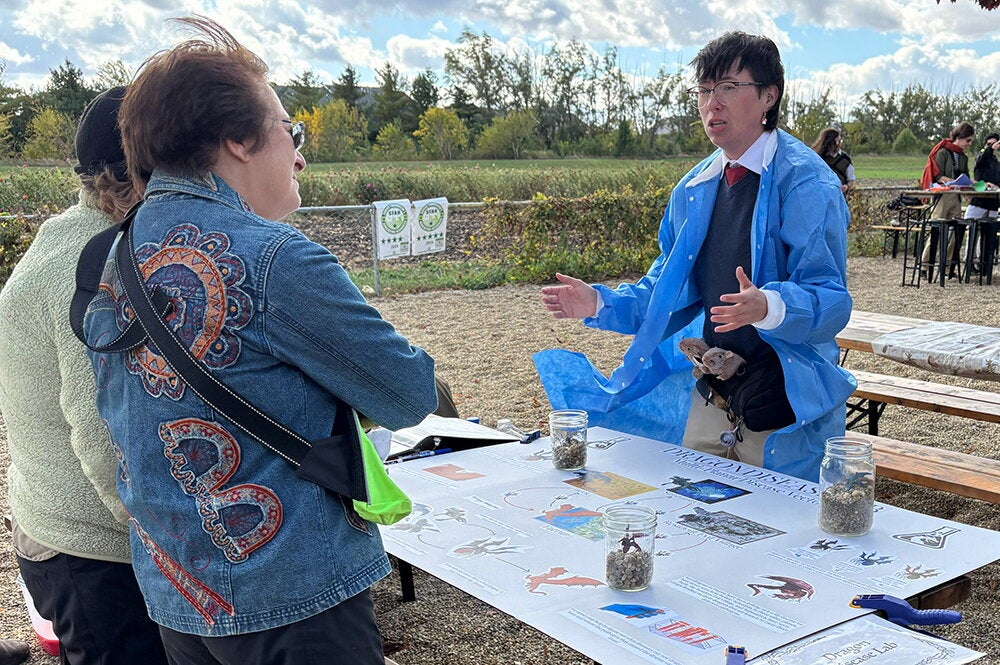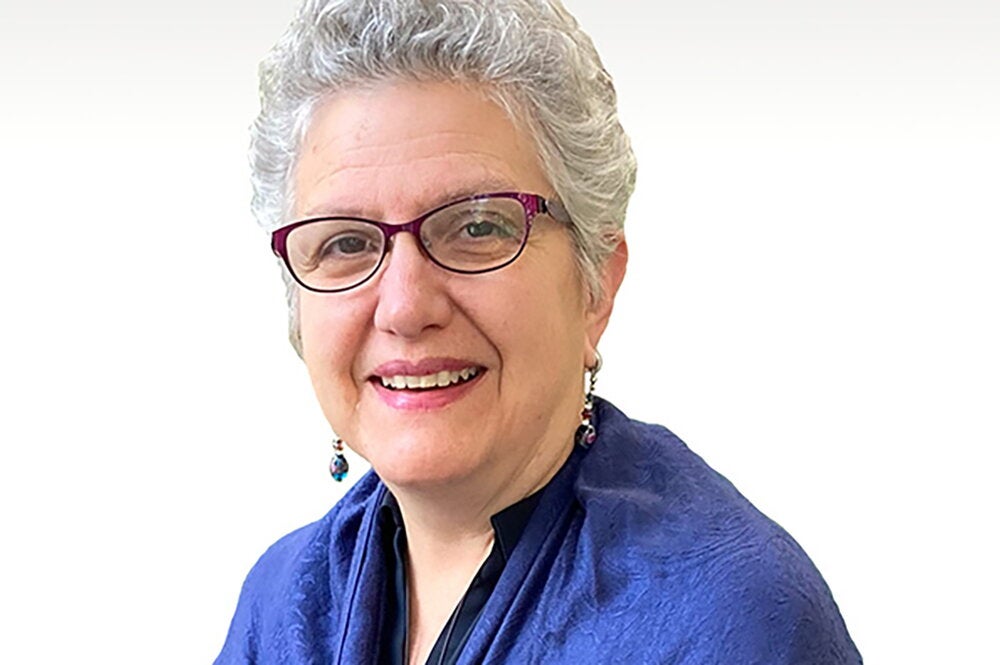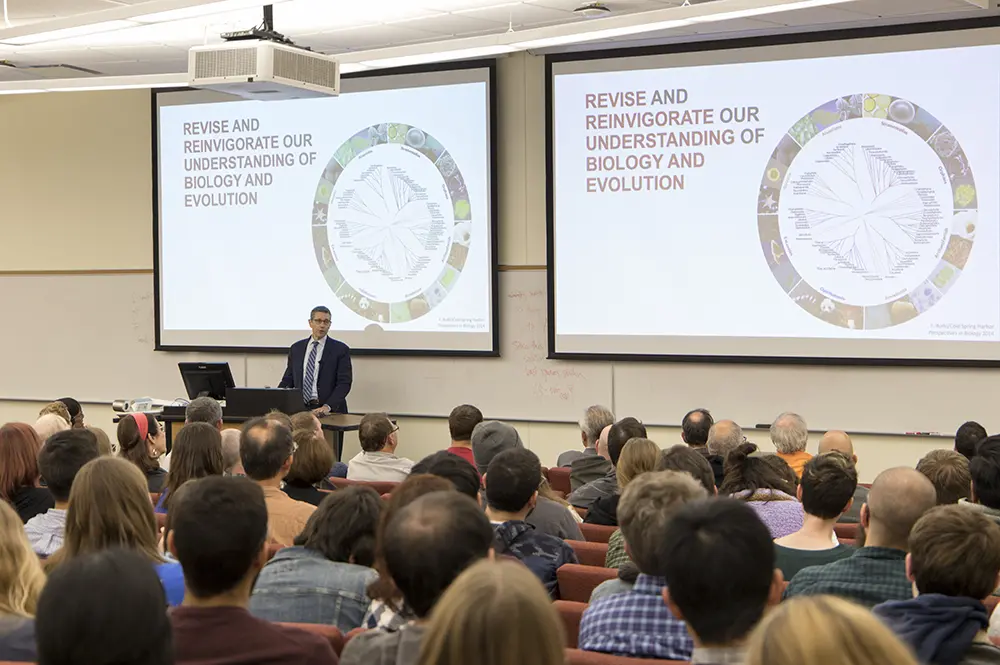
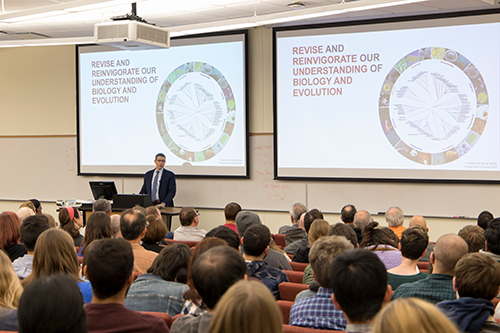
The College of Liberal Arts & Sciences has established the LAS Dean’s Distinguished Lecture to provide wider opportunity for people to hear from faculty who are leaders in their field. The inaugural lecture featured Gene Robinson, professor of entomology and director of the Carl R. Woese Institute for Genomic Biology.
About 200 people showed up for the event, held in the Natural History Building.
“Over 15,000 LAS students have opportunities to learn in the classroom from these faculty members,” said Feng Sheng Hu, the Harry E. Preble Dean of the College of LAS, in opening remarks about the new lecture series. “But we want to provide ample opportunity for everyone to hear from these outstanding scholars. The College of LAS created this new lecture series to make sure that our campus community has the opportunity to hear from our leading experts about the work they and their students are pursuing to address important questions, and improve the society and the world.”
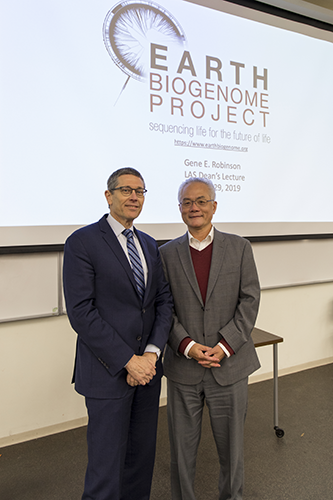
Robinson, a Swanlund Chair with an appointment at the Center for Advanced Study, is former director of the Neuroscience Program and has pioneered the application of genomics to the study of social behavior.
He spoke about the Earth BioGenome Project, an international consortium of scientists aspiring to sequence the DNA of all known eukaryotic species, which are defined as organisms whose cells have a nucleus that houses their chromosomal DNA. They include animals, insects, plants, fungi, protozoa, and numerous other species, most of which are single-cell organisms.
Robinson, who is co-chair on the project, discussed the motivation, plans, and progress since the initiative launched in November 2018. Currently, the genomes of about 0.3 percent of the roughly 1.5 million known eukaryotic species have been sequenced. Fully understanding the genomes of eukaryotes will help scientists understand the evolution and organization of life, according to the project. This would also allow for species discovery, Robinson said.
Researchers estimate that the initiative will take 10 years and cost approximately $4.7 billion.
“We want to create a digital genome repository life on earth,” Robinson said. “We think it’ll provide an infrastructure for a new revolution in biology.”
Watch a video of the lecture below.
{"preview_thumbnail":"/sites/default/files/styles/video_embed_wysiwyg_preview/public/video_thumbnails/_SCl9u8h1gU.jpg?itok=tJCMPoGt","video_url":"https://www.youtube.com/watch?v=_SCl9u8h1gU&feature=youtu.be","settings":{"responsive":1,"width":"700","height":"394","autoplay":0},"settings_summary":["Embedded Video (Responsive)."]}
